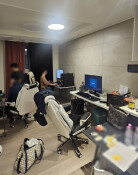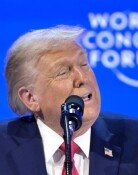[Editorial] Labor Partys True Colors
[Editorial] Labor Partys True Colors
Posted July. 21, 2006 03:02,
The Democratic Labor Party supported Pohang construction workers unions illegal occupation of POSCO headquarters yesterday, saying that the Labor Minister must go to the protest site and listen to the workers voices. With regards to North Koreas decision to stop the reunions of separated families, the party sided with the North criticizing the South Korean government for bringing about this crisis by linking the missile issue with its humanitarian aid to North Korea.
Pohang is facing a catastrophe due to some construction workers violent protests, as a result of which the local residents and small merchants are suffering terribly. During the 2002 presidential election campaign, the then leader of the Democratic Labor Party, Gwon Yeong-gil, earned voters hearts with his sentimental approach asking, Fellow Koreans, are you happy? Now that the party is urging the government to surrender in the POSCO crisis, it is doubtful whether the party really cares about the happiness of Koreans, the Pohang citizens.
Last year, the party forced out the former head of the National Police Agency for his stance that illegal protests must be punished severely, and now, it is interfering with almost every trouble that threatens the fundamentals of Korea including security and economy. It made into the National Assembly two years ago, proclaiming itself to be a progressive party that speaks for workers, farmers and other underprivileged classes. Nevertheless, it seems as if the party is taking advantage of the weak to increase social instability.
Has the Democratic Labor Party ever won a concession from those with vested interests in labor to create happiness and jobs for more people? Rather, it is just shaking businesses management and discouraging investment. In this sense, the party is no different from an anti-national, anti-people and anti-national interest group.
It is stipulated in the party platform that the partys goal is to drive out foreign power and to follow and develop socialist ideals and principles in order to realize a new liberated community. With this in mind, it is no coincidence that the party caused bloody clashes twice when it joined the Korean Confederation of Trade Unions in the protest against the expansion of the U.S. Army base in Pyeongtaek. Last year, the delegation of the party paid tribute to the grave of patriots in North Korea and left a message saying we will remember your love for the nation forever.
Before too late, the Democratic Labor Party must clarify to the people whether it will acknowledge and respect Koreas rule of law and system or it will go on and become an anti-national group that instigates social unrest.






![[김순덕 칼럼]팥쥐 엄마 ‘원펜타스 장관’에게 700조 예산 맡길 수 있나](https://dimg.donga.com/c/138/175/90/1/wps/NEWS/IMAGE/2026/01/21/133206359.1.jpg)
